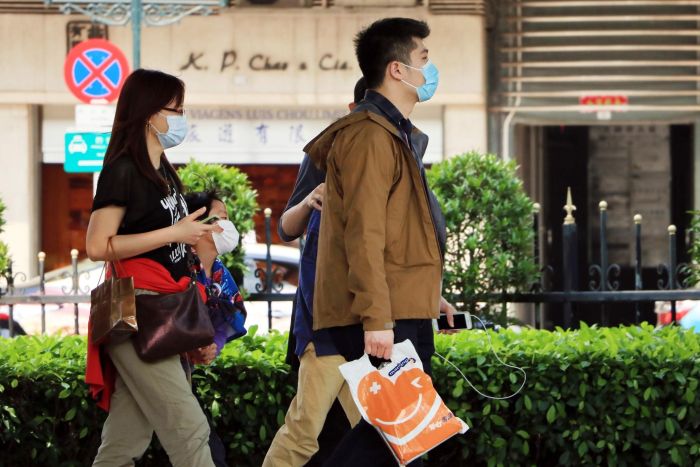China COVID-19 Lockdown Trend Report
Survey conducted online in China among 2,022 people between January 23 and March 13 amidst COVID-19 lockdown detects shifts in values and trust.
Increase in collective values, etiquette, appreciation and service to others, while people struggle to adapt amidst lockdowns during COVID-19 pandemic.
- Increasing focus on the collective, declining tolerance of individualism
- Rising trust in people, education, civil servants and Chinese companies
- Appeal of Jack Ma rising: billionaire philanthropist who helps save lives
- Pandemic will likely instigate collectivist values in all affected countries
By Martijn Lampert & Anne Blanksma
March 21, 2020
It was a coincidence that we were conducting the online fieldwork of our annual worldwide Glocalities survey amidst the lockdowns in China. As global values researchers we feel the responsibility to share the outcomes publicly, as China is ahead of the curve of the COVID-19 pandemic, compared to other countries.
How are values and trust of people shifting due to the COVID-19 pandemic and lockdown measures, and how will this translate over time into societal trends?
See also this newspaper Op-Ed about this question by our Principal Anne Blanksma.

These are fundamental questions for public authorities, businesses and organizations who are grappling with the new reality and trying to adapt their policies, business propositions and priorities to the rapidly changing environment.
This research paper provides early indicators of the public impact by analysing the Glocalities survey data in China, which happened to be in the field in the period of 23 January until March 13, just before and during the lockdown measures in various Chinese cities and provinces. By comparing the results before and after 5 February (the approximate date when most affected Chinese provinces went into lockdown) we were in the unique position to measure shifts in the heat of the crisis.
The survey in China is part of the annual worldwide Glocalities survey in 25 countries, into values, lifestyles, trust and trends. This analysis provides insights into the situation in China, but also reveals patterns that may occur in countries currently affected by the COVID-19 crisis.
Values shifts:
- 1. Taking precaution
- 2. Emphasis on etiquette
- 3. Less tolerance for individualist behaviour
- 4. Recognition of contributions
- 5. Time squeeze
- 6. Longing for structure
- 7. Focus on income
- 8. Helping my children progress
Trust shifts:
- 9. Rising trust in people, civil servants, education and companies from China
- 10. Rising appeal of billionaire philanthropist Jack Ma
Martijn Lampert, Research Director Glocalities, interprets the research findings:
“The Chinese lockdown trends survey reveals that the hardship and tragedy of lives lost during the COVID-19 pandemic cause a situation of fundamental reset for populations all over the world. The Chinese results reveal ahead of the curve in other countries that amidst taking precautions, insecurity, hoarding and adaptation struggles there is an increase in service to others and etiquette. In times of isolation people increasingly value their fellow humans and especially those who are at the frontline in battling the crisis. This pattern is likely universal and applicable to most affected countries.
The current pandemic will lead to an increase in collectivist values all over the world. Only collective action can contain the COVID-19 virus. The lockdown trend survey shows an ample opportunity for billionaire philanthropists like Jack Ma and companies in all countries to step in and assist governments, healthcare workers and communities in saving lives, combatting the crisis and rebuilding society. People from all walks of life have the obligation to be of service to others and use their talents, means, determination and change power to step in and contribute.’'
Response by Professor Ronald Inglehart, Founder and Director of the World Values Survey:
"The findings from your China survey are fascinating - and exactly what Evolutionary Modernization theory would predict. By comparing responses before and after February 5, you ingeniously obtained the results of a natural experiment.’’
In the coming months, we will be tracking shifts due to the COVID-19 pandemic in a multitude of countries. If you are interested in receiving updates on our research findings, please subscribe to our newsletter. If you are interested in adding bespoke questions to these surveys, please contact Martijn Lampert or Anne Blanksma to discuss possibilities (see contact details below).
International Media Coverage
In cooperation with Reuters, we released the research findings on Monday, March 23. Immediately the news was picked up and it spread very fast, first in Western countries and later also in Asia. In total 73 media from all over the world published the article, and it is still appearing in more countries.
Below you find the main media that published about the study globally and per country:
-
Globally
-
Australia
-
Canada
-
Hong Kong
-
India
-
Israel
-
Malaysia
-
Singapore
-
Russia
-
Turkey
-
Poland
-
Mainland China
-
Slovakia
-
Switzerland
-
South Africa
-
Vietnam
-
Bulgaria
-
Germany
-
Croatia
-
Indonesia


